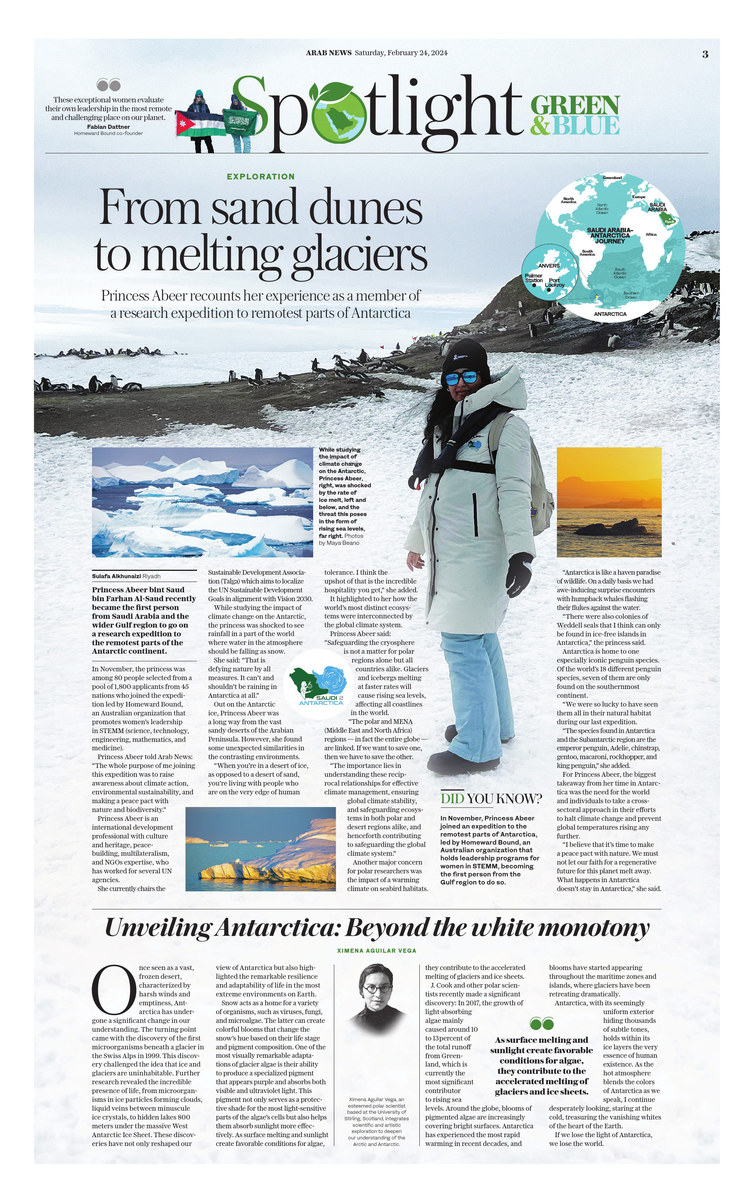RIYADH: Princess Abeer bint Saud bin Farhan Al-Saud recently became the first person from Saudi Arabia and the wider Gulf region to go on a research expedition to the remotest parts of the Antarctic continent.
In November, the princess was among 80 people selected from a pool of 1,800 applicants from 45 nations who joined the expedition led by Homeward Bound, an Australian organization that promotes women’s leadership in STEMM (science, technology, engineering, mathematics, and medicine).
Princess Abeer told Arab News: “The whole purpose of me joining this expedition was to raise awareness about climate action, environmental sustainability, and making a peace pact with nature and biodiversity.”
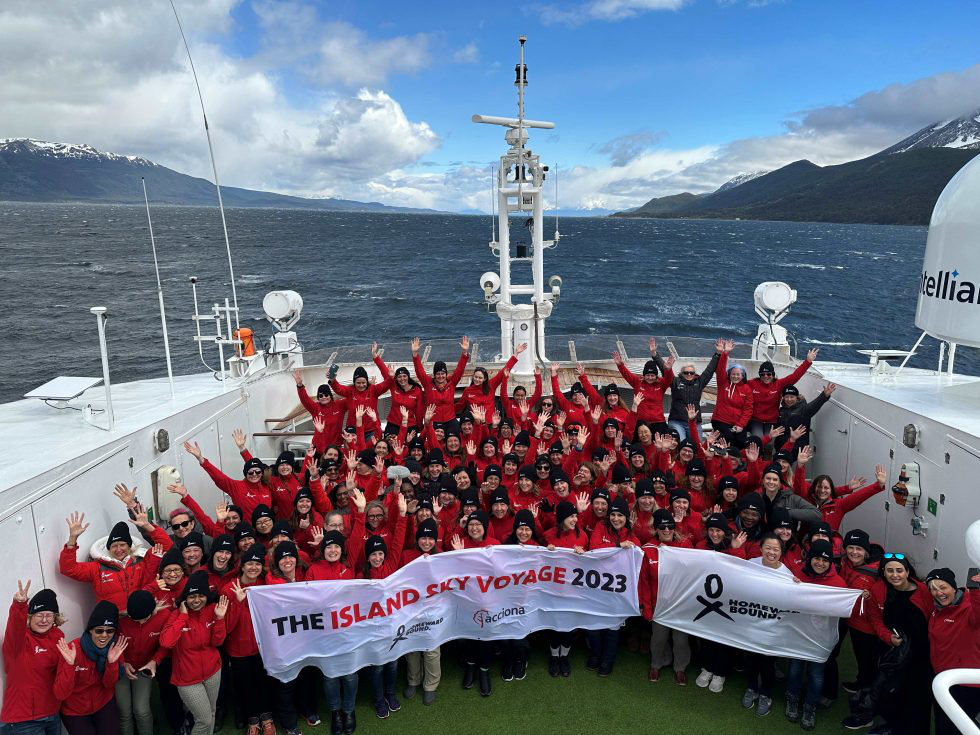
The women on The Island Sky 2023, from 18 countries, set sail on Nov. 12, 2023, from Puerto Madryn, Argentina, for a 19-night voyage. (Photo courtesy of Homeward Bound)
Also on the expedition were astronomers, oceanographers, glaciologists, mathematicians, marine biologists, and renewable energy engineers, who collaborated on various projects some of which were part of the UN Climate Change Conference (COP28), held in Dubai in November and December.
The princess said: “As a group, a few of us collaborated on multiple projects combining science, art, and policy and advocating at the UN by drafting reports and preparing our talks and findings for our participation at COP28.”
FASTFACT
• In November, Princess Abeer joined an expedition to the remotest parts of Antarctica, led by Homeward Bound, an Australian organization that holds leadership programs for women in STEMM, becoming the first person from the Gulf region to do so.
Princess Abeer is an international development professional with culture and heritage, peacebuilding, multilateralism, and NGO expertise, who has worked for several UN agencies.
She currently chairs the Sustainable Development Association (Talga) which aims to localize the UN Sustainable Development Goals in alignment with Vision 2030.
The princess noted that she was passionate about dedicating her life to projects that helped preserve endangered species, land, and the planet.
She is also an artist, inspired by her surroundings and what she described as her “cosmic desert” adventures in Saudi Arabia, where she produces works on canvas utilizing natural materials.
Before setting off for Antarctica, Princess Abeer pointed out that she would channel her ancestral heritage.
“I will draw on my roots as a woman from the desert and as a sailor, looking to the heavens to guide me.
“The Southern Cross has led me to many answers and many more questions, just like the North Star has led wanderers through the desert for countless generations,” she added.
The Bedouin who traversed Arabia’s vast deserts over the millennia relied on the stars.
November’s expedition was not all plain sailing. An unexpected storm struck the team’s ship as it navigated the Drake Passage, one of the world’s choppiest sea routes located between South America’s Cape Horn and the South Shetland Islands of Antarctica.
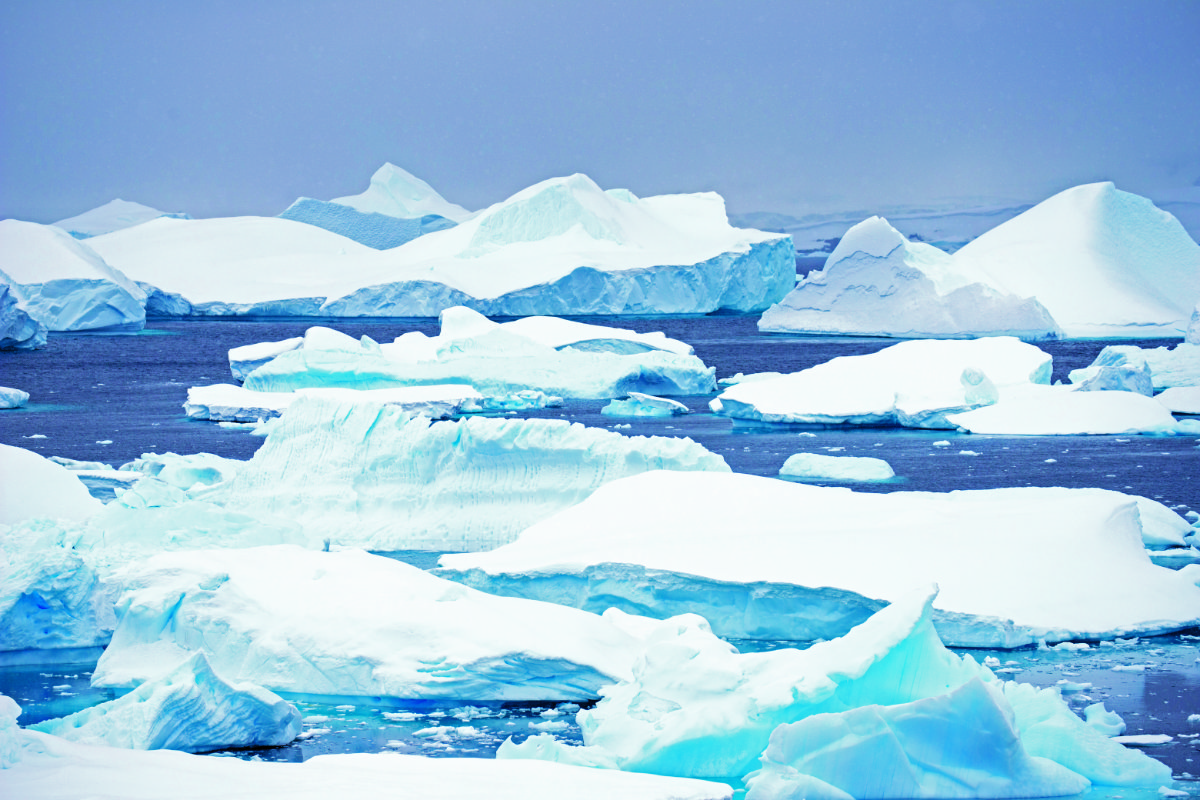
Navigating through icebergs amid stormy waters could be a truly frightening experience. (Photo by Maya Beano)
The princess said: “We had a very challenging 48 hours on the Drake Passage. My expedition mates lay on their bunks. Others used dark humor to console their anxiety by playing the ‘Titanic’ soundtrack on the old piano on board in the open area lounge.
“A few others were brave and calm, enjoying their time knowing that the storm would pass.”
While the experience was no doubt frightening, she added that she felt humbled, both by the power of nature and the skill of the ship’s crew who brought them safely through the towering waves to calmer seas.
“Witnessing and experiencing the majesty of nature’s fury is the art of humble exploration. I think it requires so much mental agility, gentle wisdom, and humor to overcome any storm, rogue waves, or any hardship in your life,” she added.
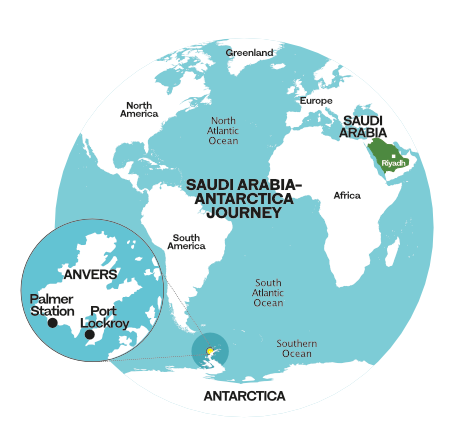
When the team arrived in Antarctica, Princess Abeer noted that it felt like she had been transported to another world, similar to “Alice in Wonderland.”
She said: “It felt like being in an immersive and multi-sensory natural museum of raw and untouched beauty. You can hear the sound of silence. Antarctica is the icebergs and glaciers gazing at you.”
Although the expedition took place during the Southern Hemisphere’s summer season, it was vital that participants wore the appropriate gear to withstand the cold, plus polarized sunglasses to protect their eyes from the sun’s harsh ultraviolet rays.
But to work in such inhospitable conditions, the princess pointed out that participants required inner strength.
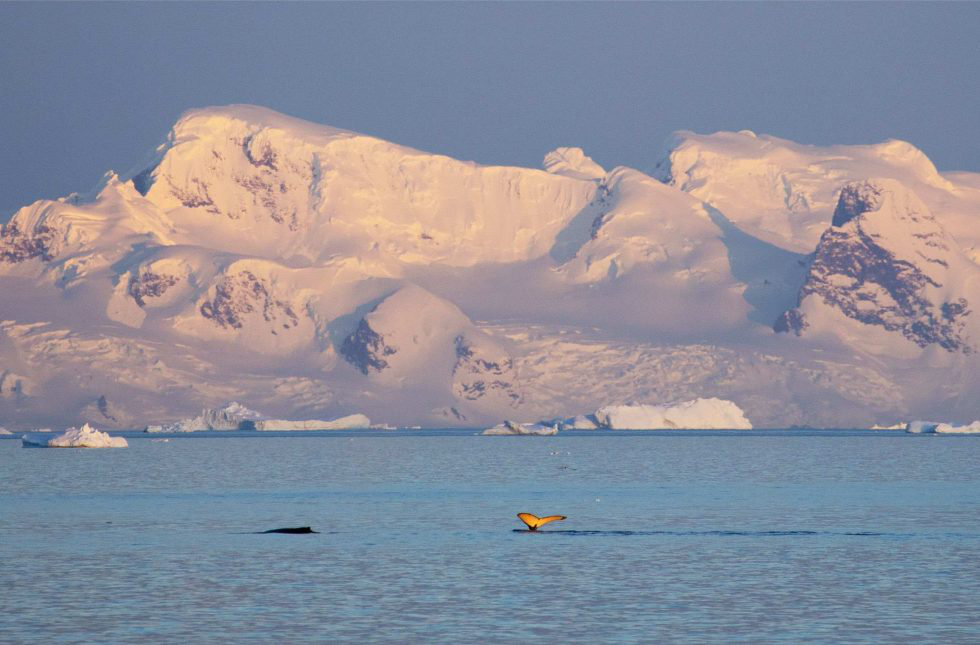
Humpback whales gracefully surface in the Gerlache Strait during sunset. (Photo by Maya Beano)
“In isolated polar regions, just like hibernating animals live off their fat, as polar explorers we sought to ignite our spirits — with sea crafts like bunting,” she added.
Princess Abeer and the rest of the team slept aboard their ship, anchored off the Antarctic coast, but each day used Zodiacs — heavy-duty inflatable boats — to commute to their research stations and to conduct field research.
While studying the impact of climate change on the Antarctic’s weather, wildlife, and geography, the princess was shocked to see the massive icebergs breaking into the ocean and the record number of invasive species drawn to the continent by its warming climate.
In particular, she was stunned to see rainfall in a part of the world where water in the atmosphere should be falling as snow.
She said: “It was raining occasionally instead of snowing. That is defying nature by all measures. It can’t and shouldn’t be raining in Antarctica at all.”
Out on the Antarctic ice, Princess Abeer was a long way from the vast sandy deserts of the Arabian Peninsula. However, she found some unexpected similarities in the contrasting environments.
“When you’re in a desert of ice, as opposed to a desert of sand, you’re living with people who are on the very edge of human tolerance. I think the upshot of that is the incredible hospitality you get,” she added.

View of Antarctica on a sunny day. (Photo by Maya Beano)
It highlighted to her how the world’s most distinct ecosystems — from polar regions and subtropical rainforests to vast interior deserts and coastal habitats — were interconnected by the global climate system.
Princess Abeer said: “Safeguarding the cryosphere is not a matter for polar regions alone but all countries alike. Glaciers and icebergs melting at faster rates will cause rising sea levels, affecting all coastlines in the world.
“The polar and MENA (Middle East and North Africa) regions — in fact the entire globe — are linked. If we want to save one, then we have to save the other.
“The importance lies in understanding these reciprocal relationships for effective climate management, ensuring global climate stability, and safeguarding ecosystems in both polar and desert regions alike, and henceforth contributing to safeguarding the global climate system,” she added.
Another major concern for polar researchers was the impact of a warming climate on seabird habitats. The breakup of sea ice has disrupted colonies, while the arrival of invasive species from further north has brought with it the spread of avian flu.
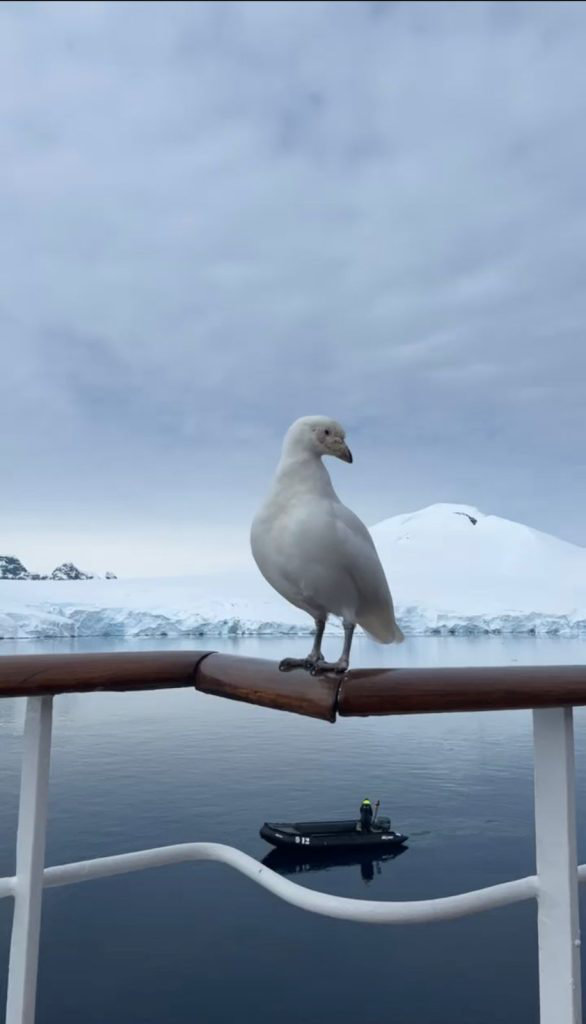
The Snowy Sheatbell, the only land bird native to the Antarctic. (Photo by Princess Abeer Al-Farhan)
“Antarctica is like a haven paradise of wildlife. On a daily basis we had awe-inducing surprise encounters with humpback whales flashing their flukes against the water.
“There were also colonies of Weddell seals that I think can only be found in ice-free islands in Antarctica,” the princess said.
Antarctica is home to one especially iconic species — penguins. Of the world’s 18 different penguin species, seven of them are only found on the southernmost continent.
“We were so lucky to have seen them all in their natural habitat during our last expedition.

Adelie penguins colony on the iceberg Antarctica. (Shutterstock)
“The species found in Antarctica and the Subantarctic region are the emperor penguin, Adelie, chinstrap, gentoo, macaroni, rockhopper, and king penguin,” she added.
For Princess Abeer, the biggest takeaway from her time in Antarctica was the need for the world and individuals to take a cross-sectoral approach in their efforts to halt climate change and prevent global temperatures from rising any further. Failure to do so, she highlighted, would lead to further ice melt and a rise in global sea levels.
“I believe that it’s time to make a peace pact with nature. We must not let our faith for a regenerative future for this planet melt away. What happens in Antarctica doesn’t stay in Antarctica,” she said.
